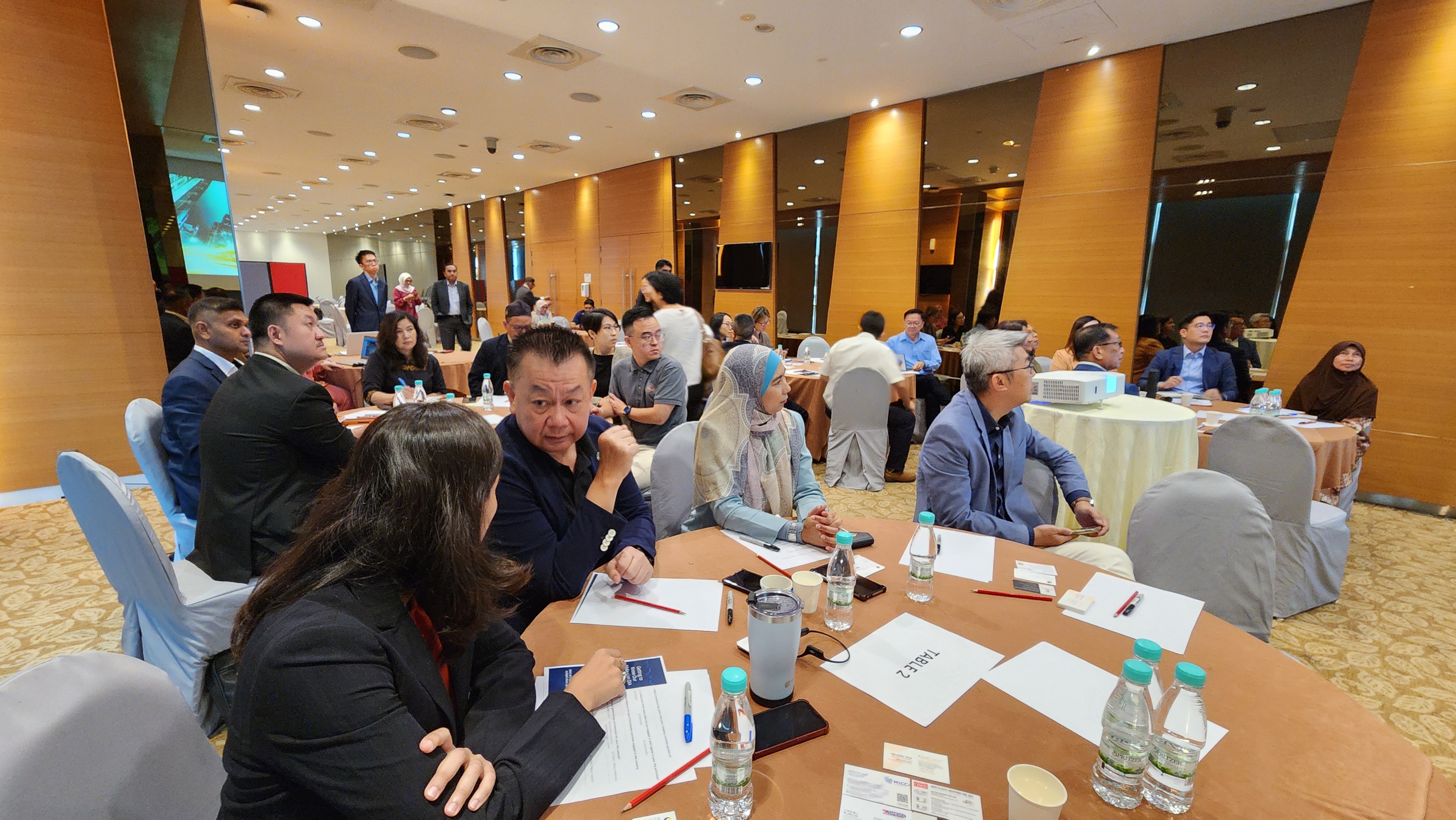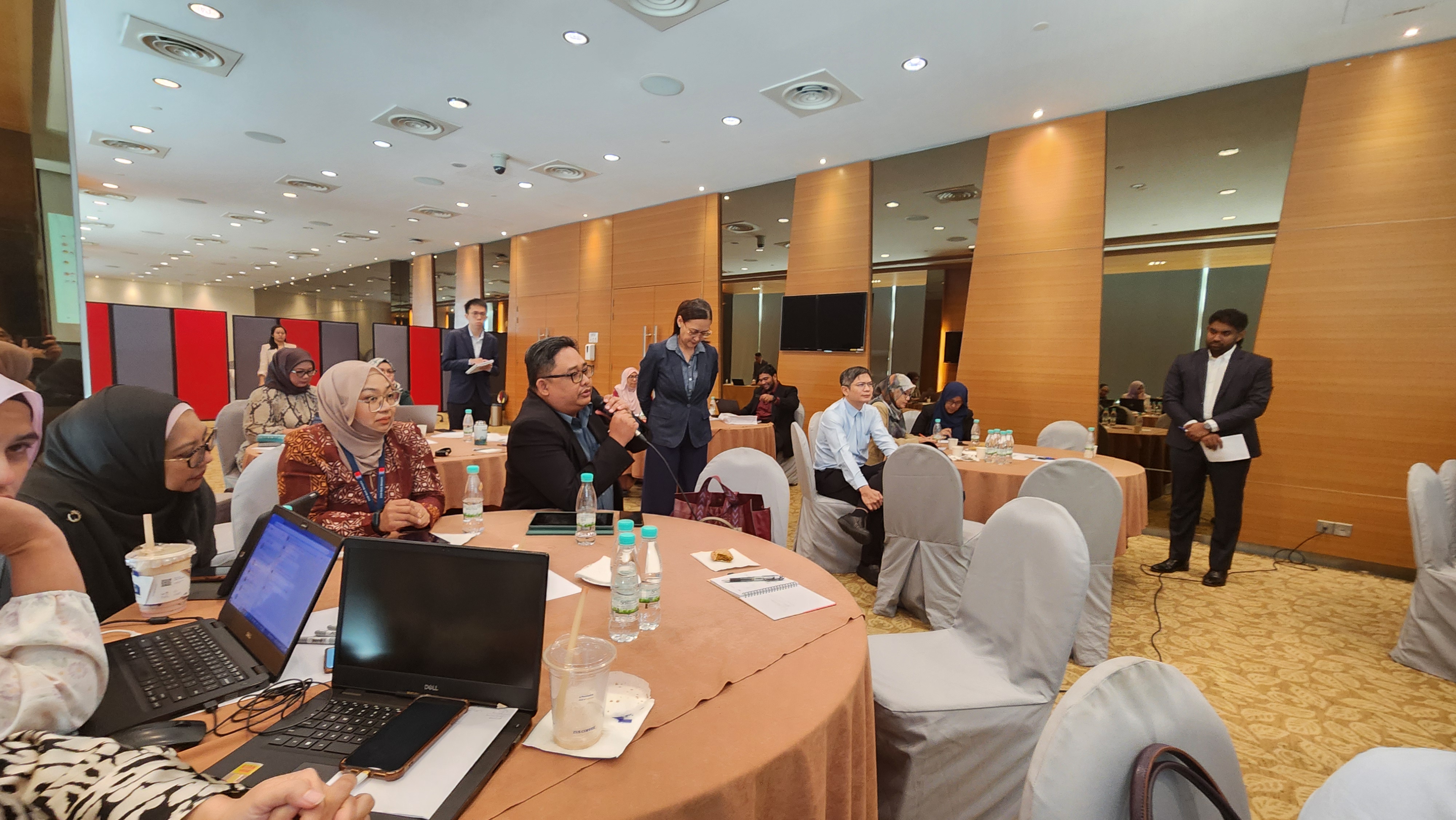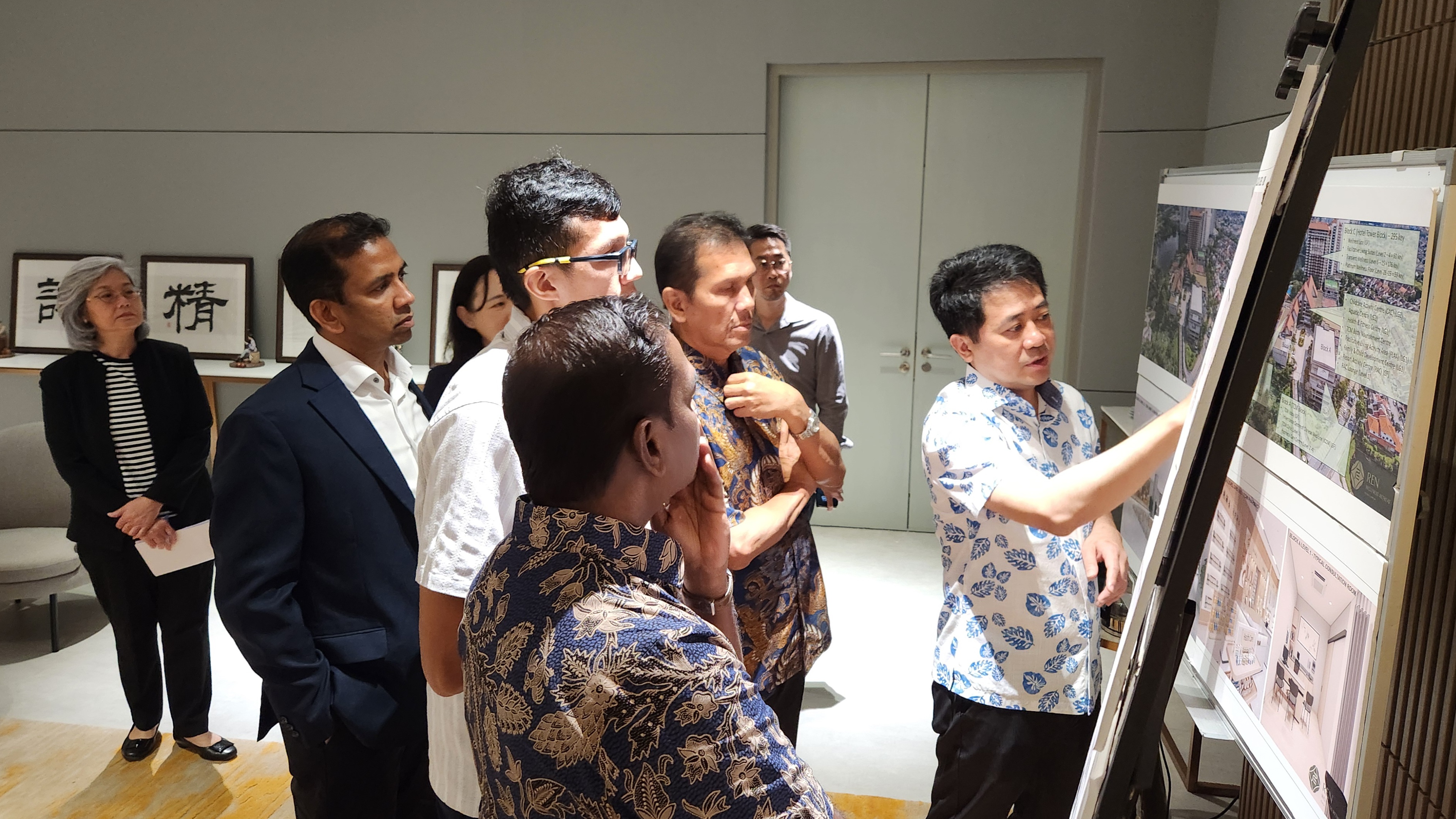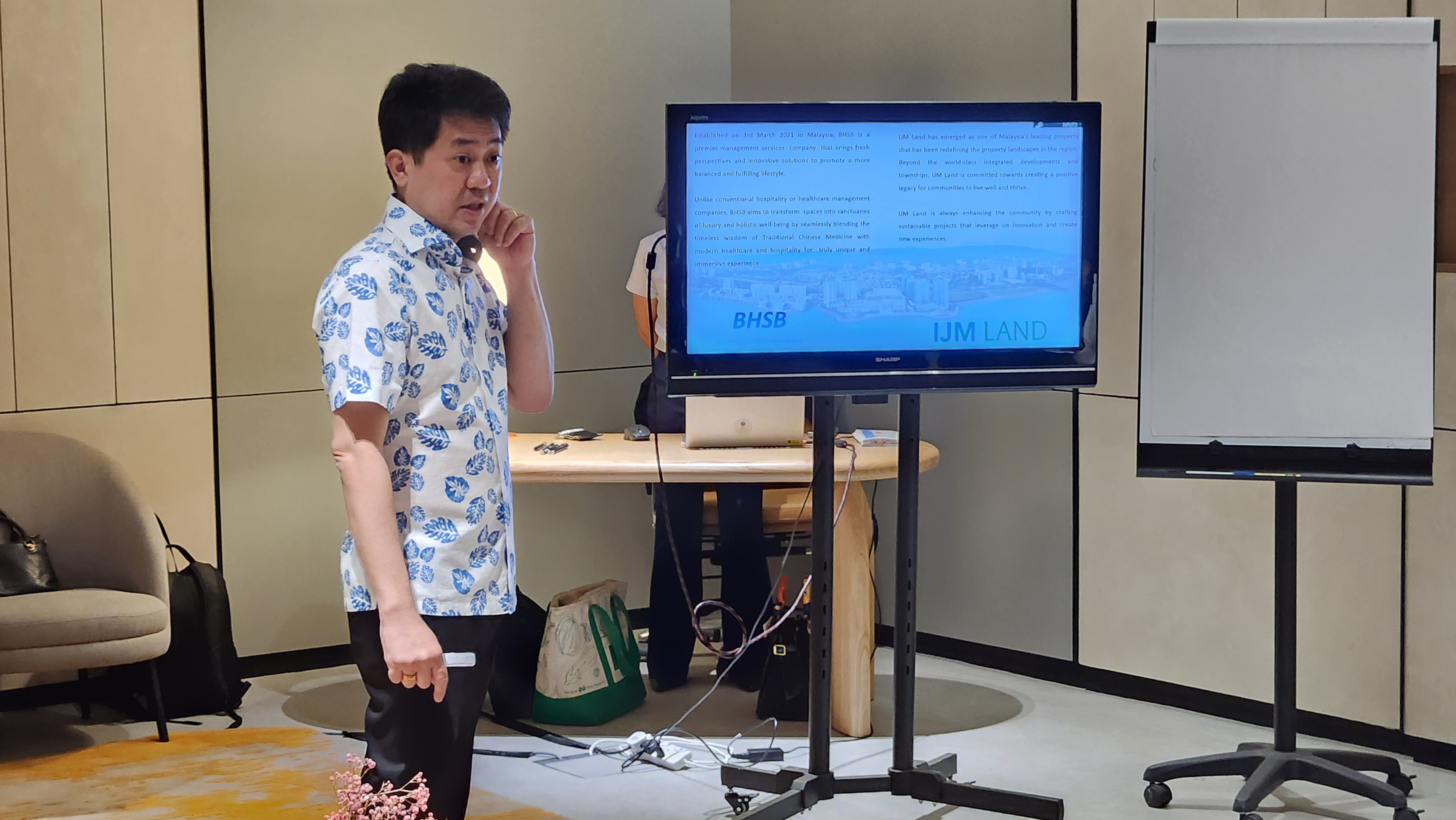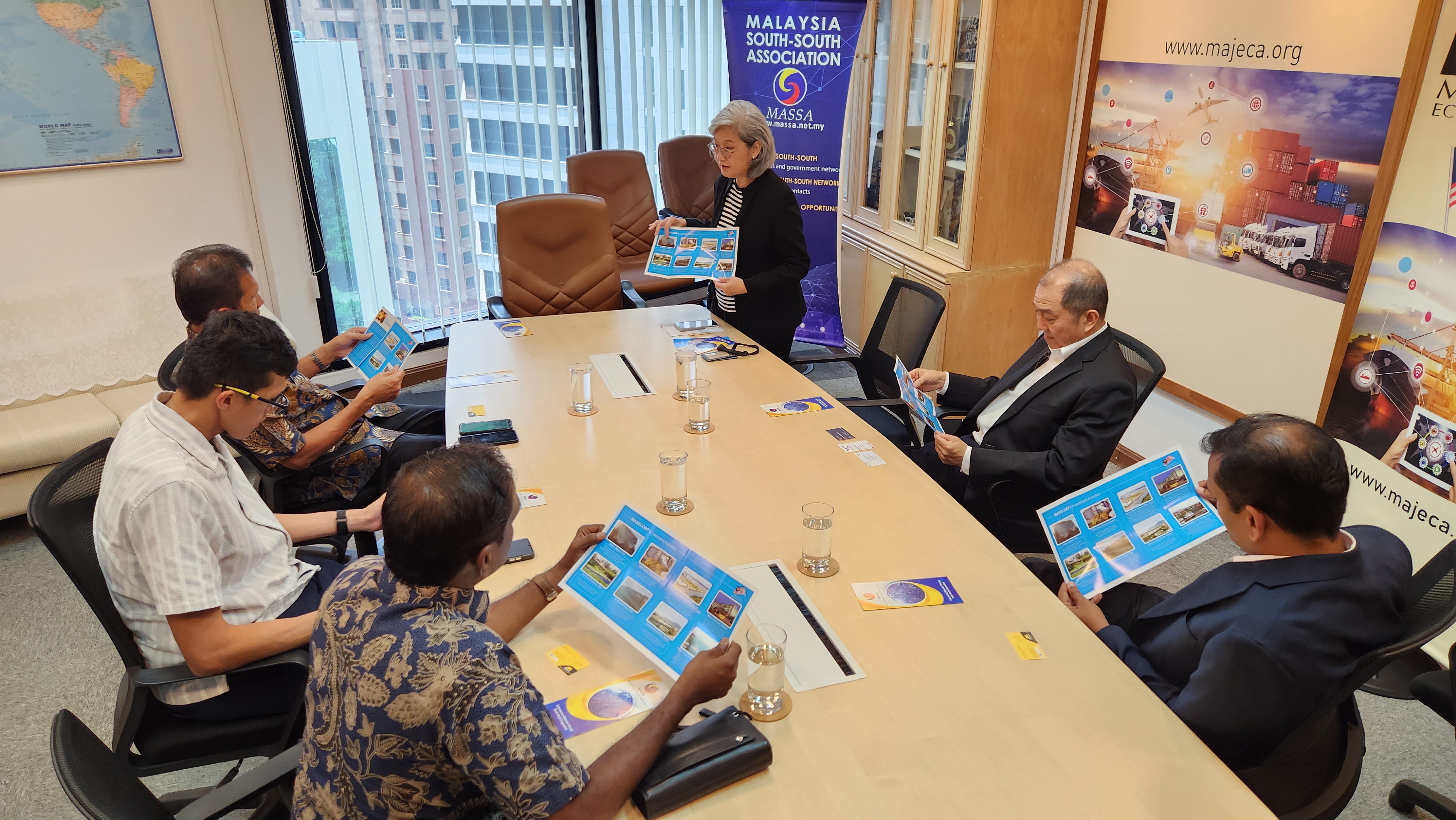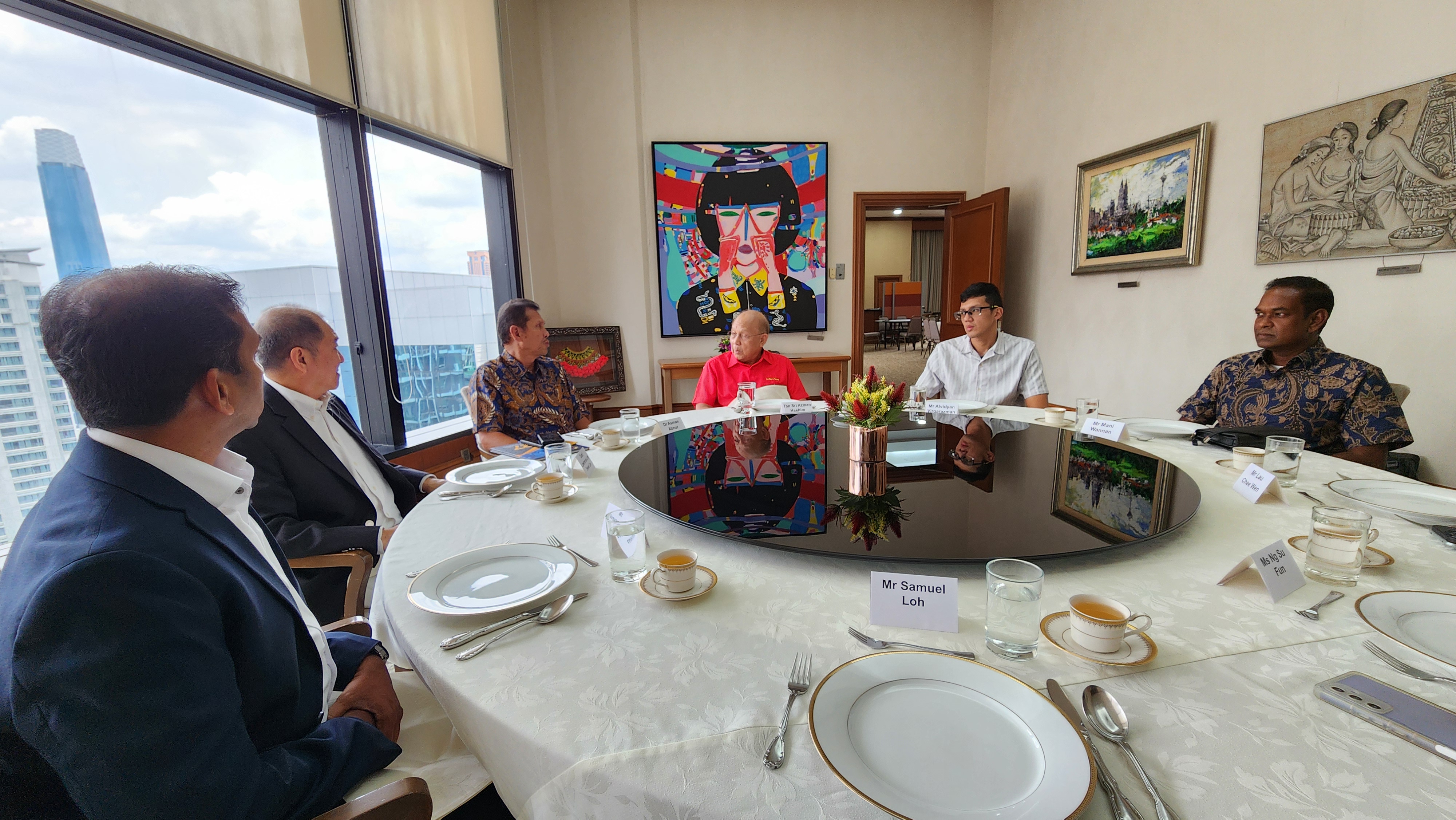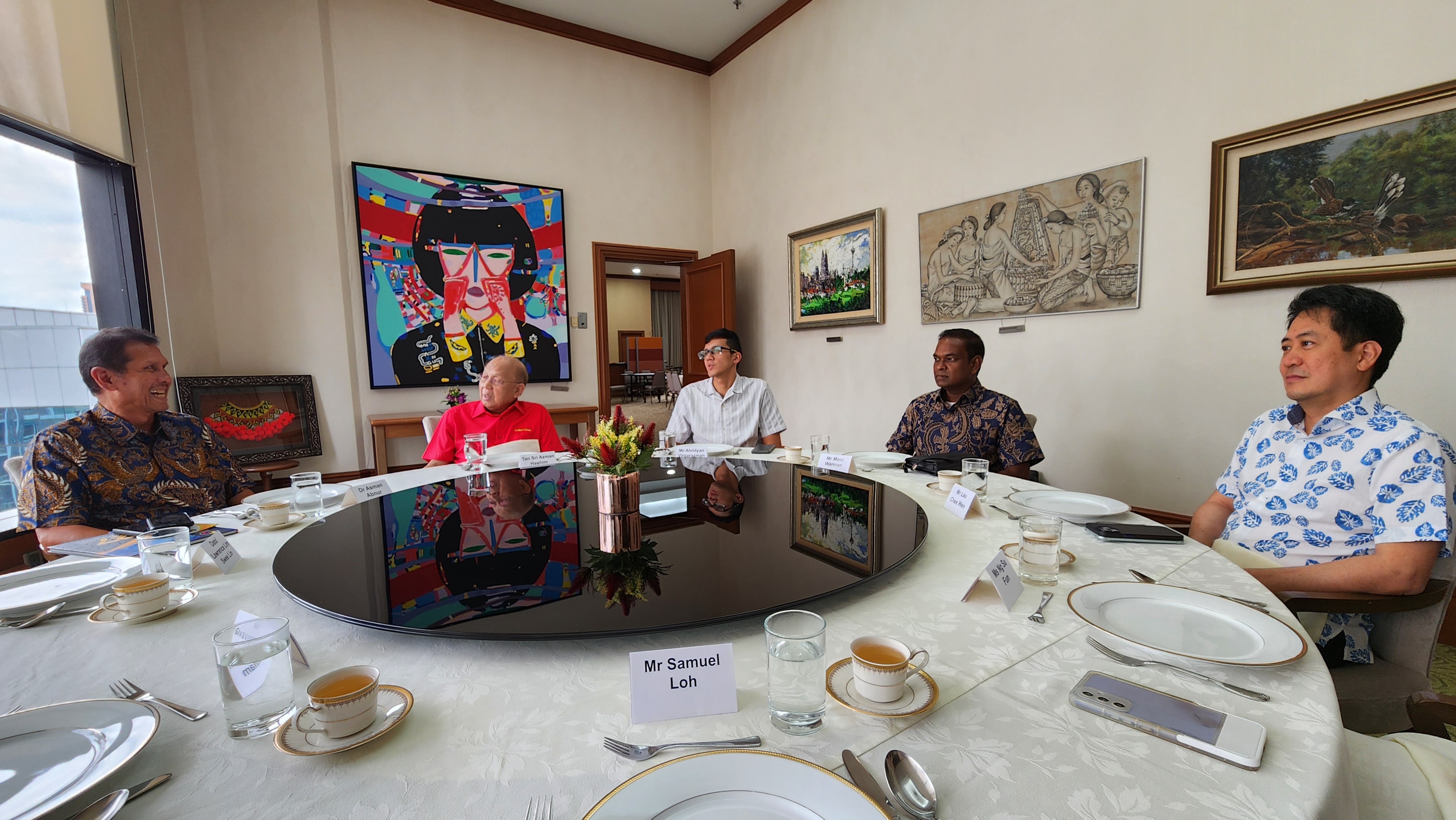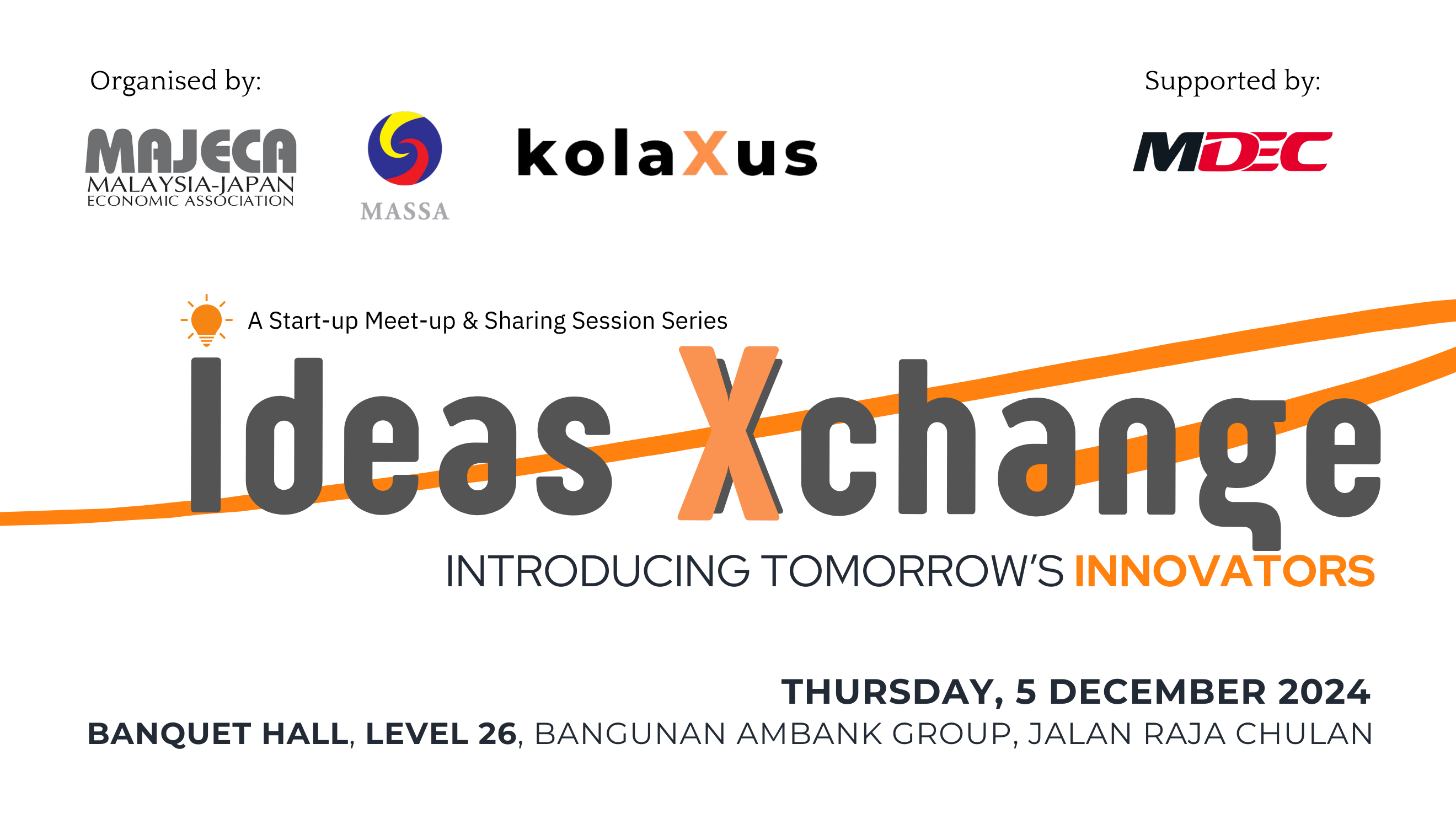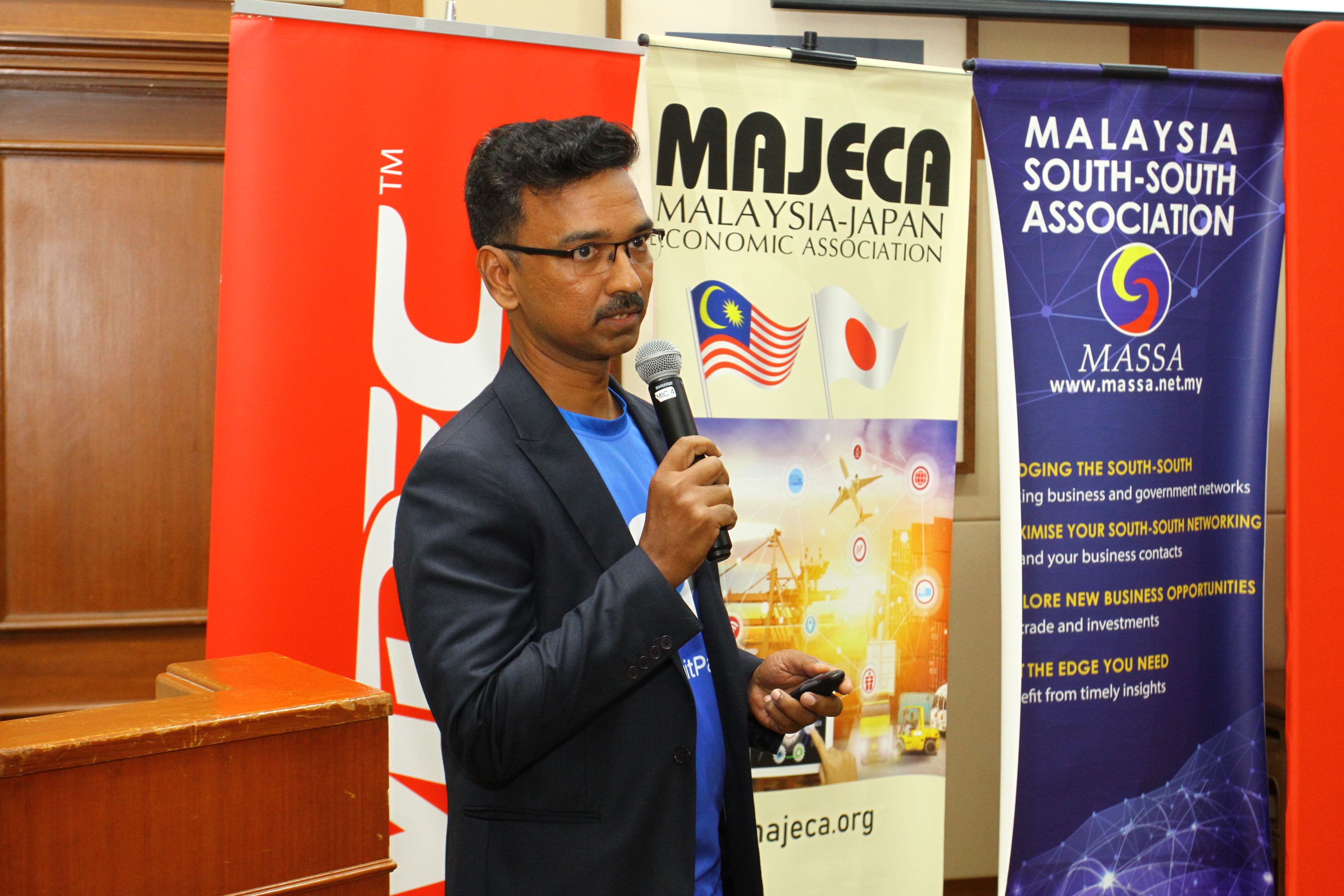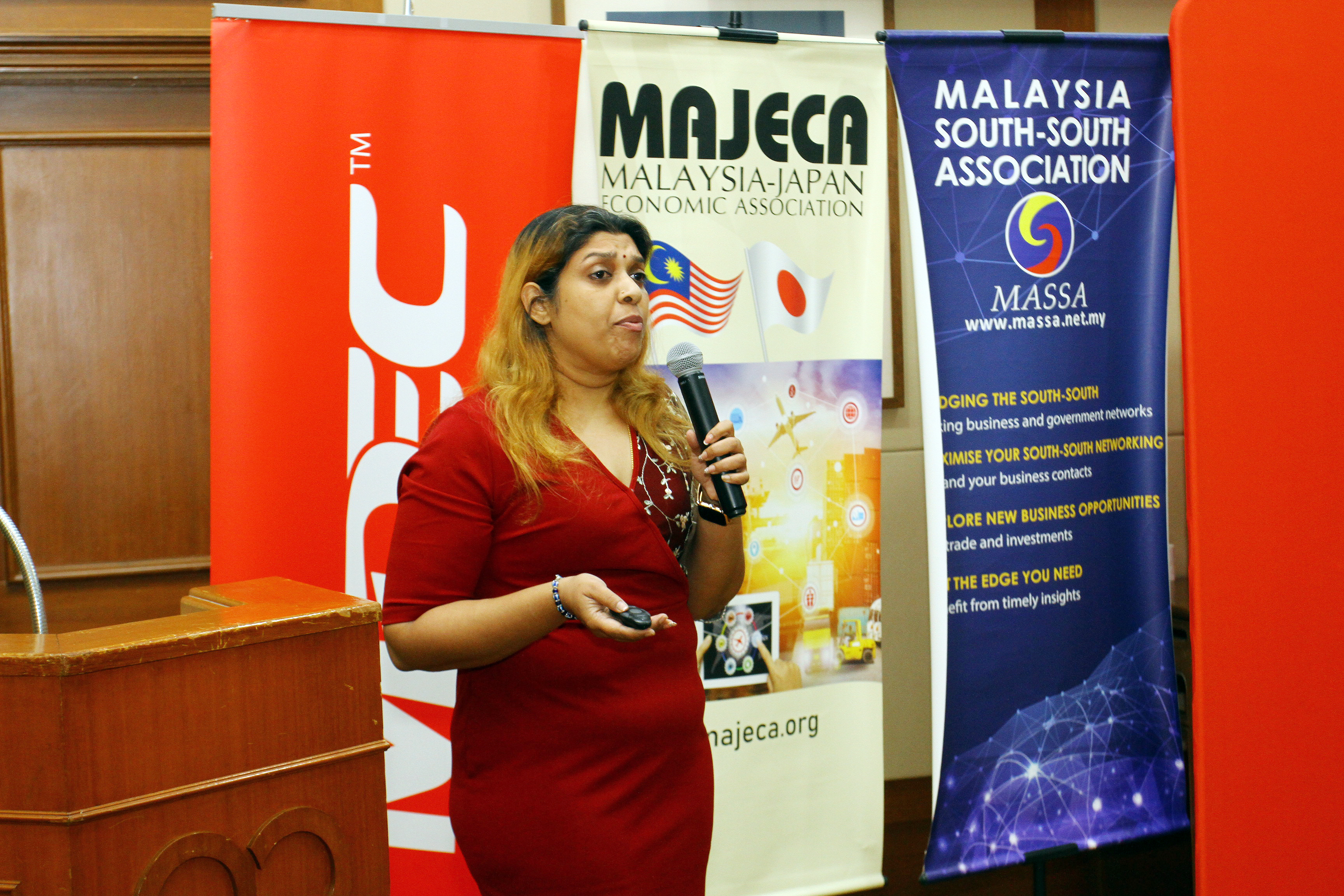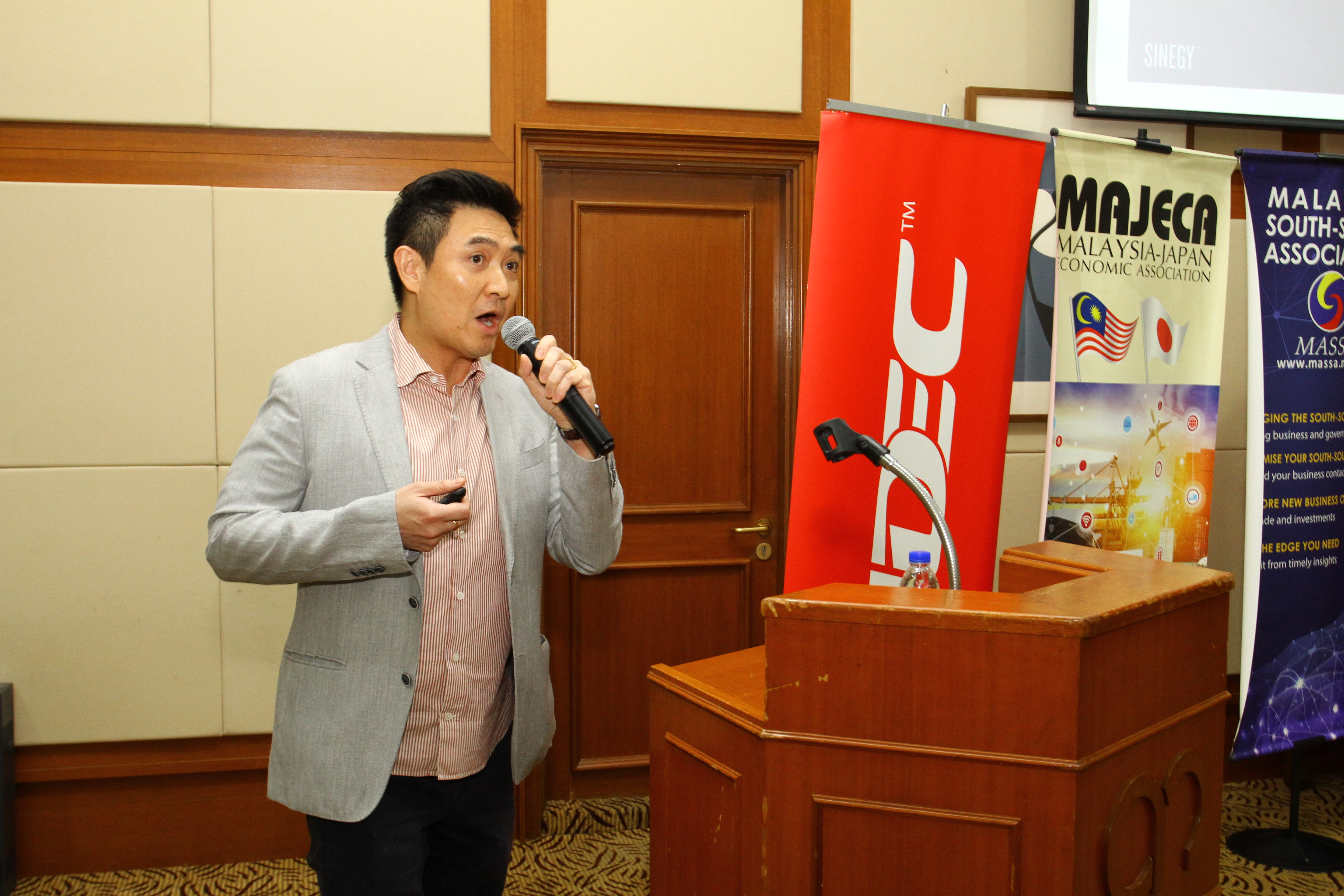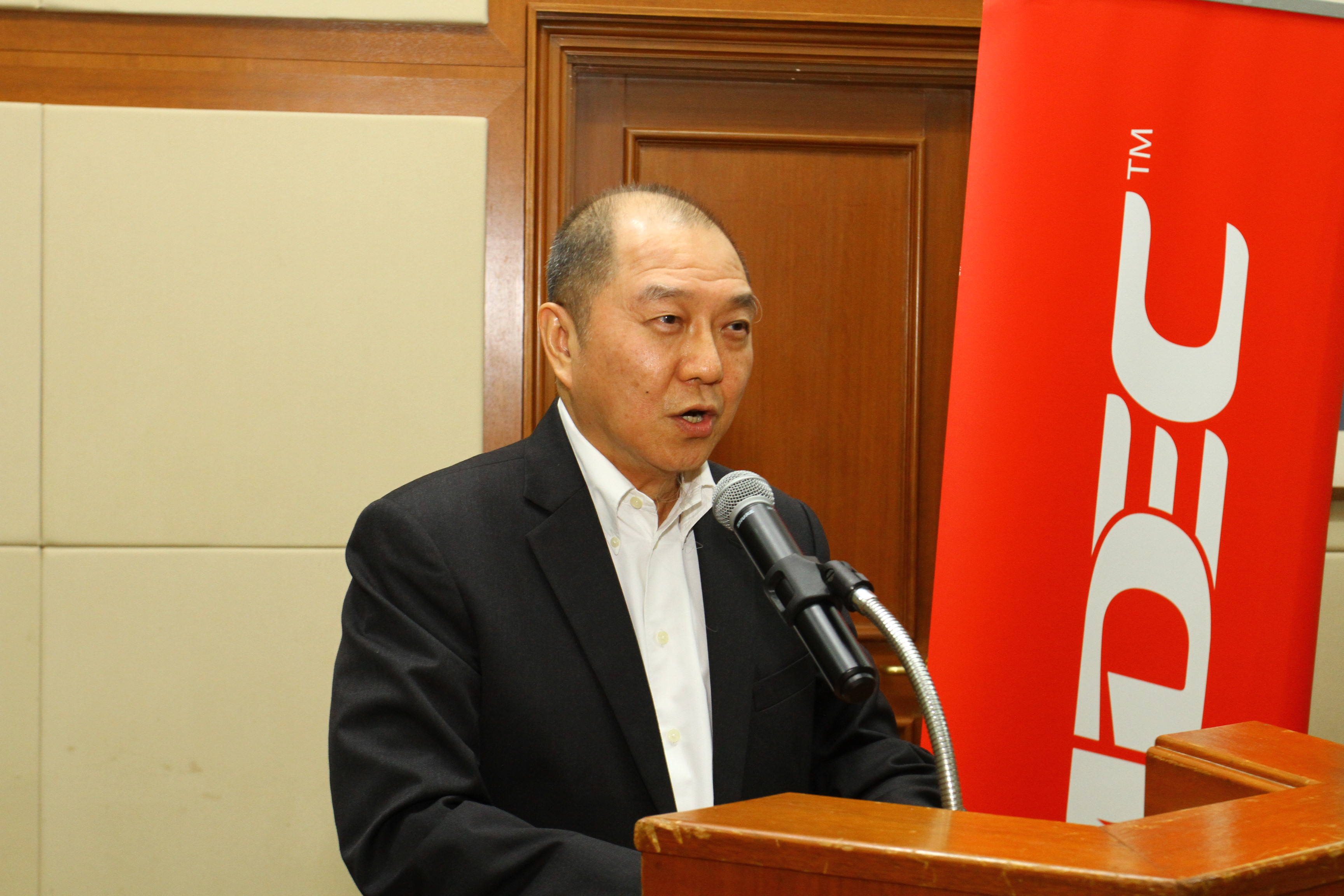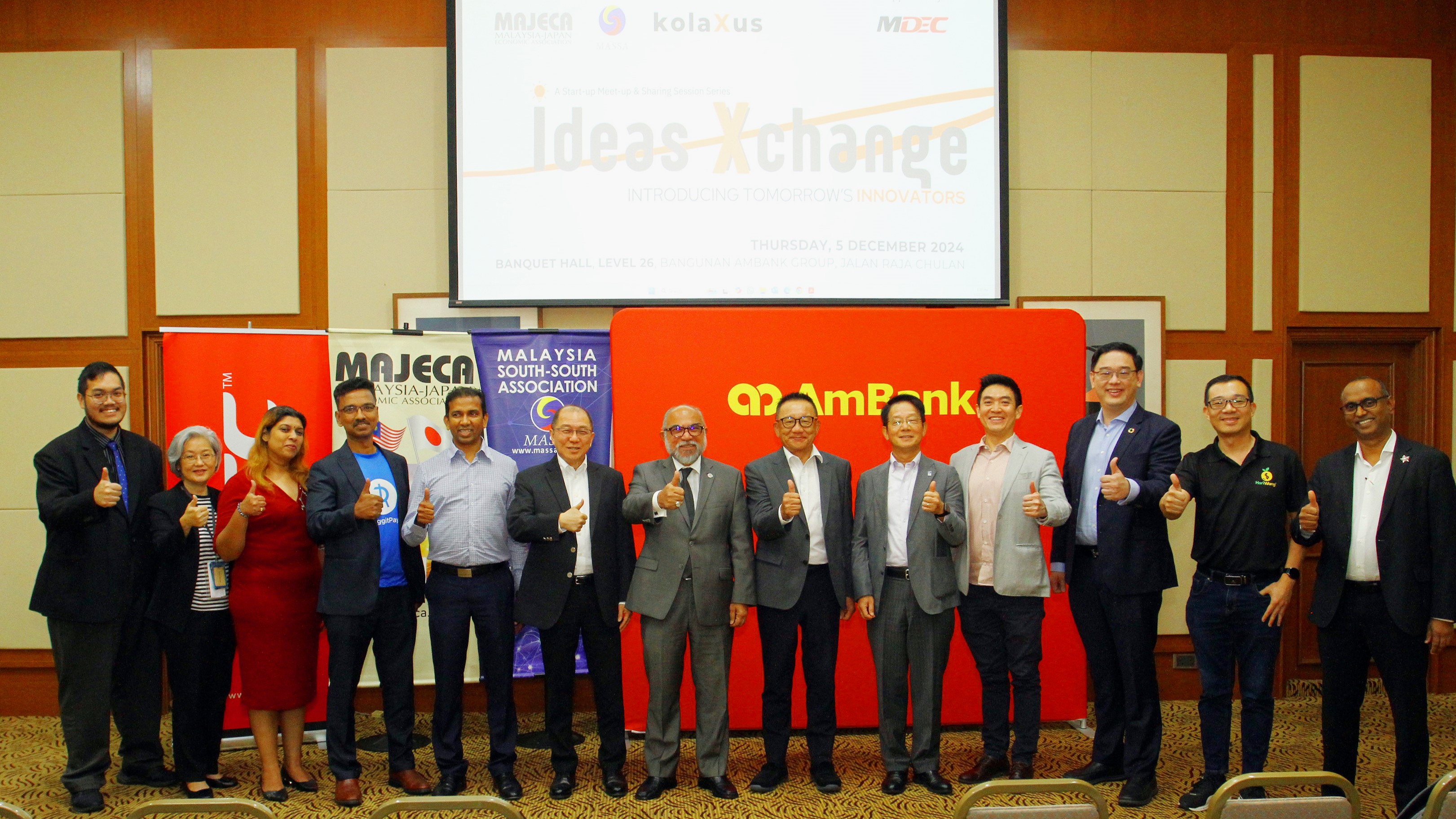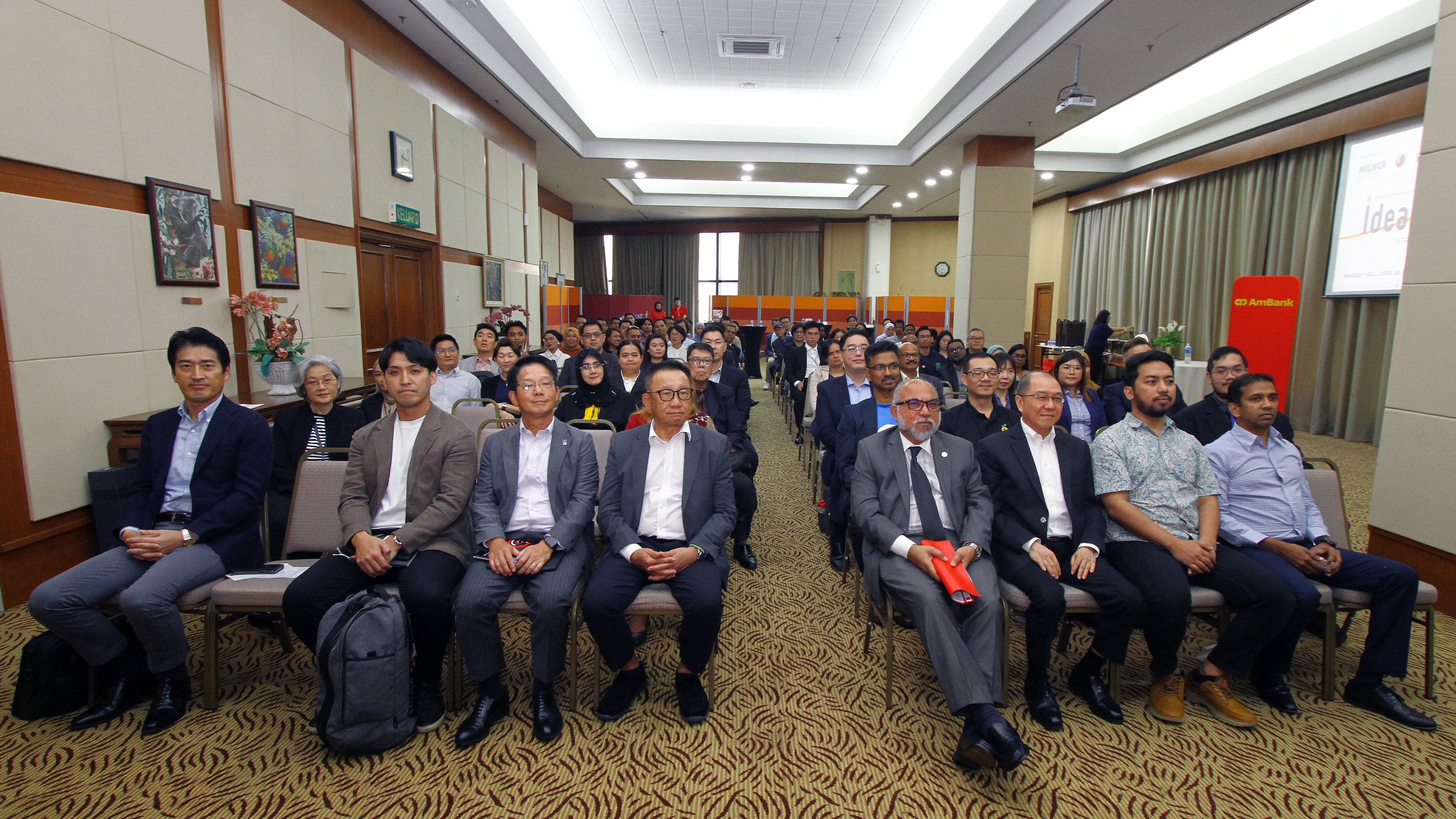President’s Message
Tan Sri Azman Hashim
President
MASSA
Global growth for 2024 is projected by the IMF to be 3.2% compared to the previous year’s 3.3%. Across the year, disruptions to production and logistics, conflicts, civil unrest, and extreme weather events had dampened global economic performance against increasing demand for semiconductors and electronics, powered by significant investments in artificial intelligence.
Malaysia’s economy achieved a commendable GDP growth of 5.1% in 1H2024, and projected to increase to 5.3% in 3Q2024. The performance was attributed to stable labour market, moderate inflationary pressures, accommodative fiscal and monetary policies, net inflow of foreign funds and ongoing recovery in tourism. These will provide the momentum for the economy going forward.
Looking ahead into the coming year 2025, the global economy is projected by the IMF to grow by 3.2% in 2025 and headline inflation is expected to fall from 5.8% to 4.3% as the US and China economies are expected to moderate, but strong investments in technology, renewable energy and healthcare will present opportunities.
With the recent unveiling of Budget 2025, Malaysia’s GDP growth for 2025 is expected to be between 4.5 – 5.5%. This growth is anticipated to be driven by private consumption, consistent improvements in the labour market and wage growth. Supportive tailwinds include FDI in new sectors, the realisation of approved investments in the private sector, the global tech upcycle, the civil service wage adjustments catalysing increased consumption and strategic infrastructure projects (e.g. ECRL). Weighing against this outlook would be cost-of-living pressures, brought on by the potential implementation of RON 95 fuel subsidy rationalization, introduction & enhancement of tax revenue measures (e.g. alignment with Global Minimum Tax, sugar tax, high-value goods tax, SST), and rising healthcare costs and consequent medical insurance premiums amongst others.
As the world undergoes further geopolitical shifts and changes, I believe cross-border partnerships are more critical than ever. MASSA is supportive of Malaysia taking on a greater presence in the regional & international landscape, especially when Malaysia assumes chairmanship of ASEAN in 2025, while it joins the ranks of Thailand and Indonesia as a partner country of BRICS. In addition to the RCEP and the CPTPP, BRICS will offer another avenue / platform for Malaysia to further develop deeper trade, investment & financial ties with the member countries who, when combined, comprise nearly half of the global population & whose economies are already worth over USD 26 trillion (over a quarter of the global economy).
Encouraged by our Prime Minister of Malaysia’s stand on the Global South, MASSA is encouraged to further its collaboration with business associates in the South-South regions to highlight new, greenfield & tech-enabled opportunities for members by bringing to members’ attention, these emerging opportunities in the South-South markets.
Additionally, MASSA is also building a new platform to highlight the burgeoning domestic startup ecosystem, to introduce & highlight new, innovative and transformative homegrown solutions & ideas. This platform is an avenue for MASSA members to get acquainted with various innovators, entrepreneurs & founders for collaborative prospects in these startups’ expansionary phase, and to ultimately connect and grow in the markets of the South-South developing countries. These economies have the potential to leapfrog development and innovation through tech-forward solutions and we want Malaysia to be part of this growth phase.
I appreciate the continuing support and cooperation of all members, especially my fellow Executive Committee Members, Representatives from Government Ministries and Ex-Officio partners with your attendance, support and contributions at our regular meetings & events and not forgetting the sponsors of our website.
I also want to thank all who have contributed valuable and insightful articles over 2024.
My best wishes to everyone, Merry Christmas and a happy, healthy and successful 2025!
Tan Sri Azman Hashim
President
28 November 2024
Editorial
Greetings from MASSA !
2024 saw a year faced with many geopolitical challenges, that resulted in contagion and systemic complexities.
As we come to the close of 2024, we are thankful to MASSA members, article contributors, and collaborators for their participation and persevering support throughout the year. MASSA will continue to highlight to members, trade, investment and business leads from the South-South countries.
For this issue, we want to acknowledge Dr Mohamed Ashraf Iqbal, Chairman of Waafi Bank for connecting us with Ms Aparupa Chakravarti, Director of Botho Emerging Markets Group who had provided an article encouraging Malaysians to consider exploring & enhancing business ties with the burgeoning market of Africa, especially through capitalising on the halal economy leveraging Malaysia’s leadership in the global halal ecosystem. The article encourages businesses to consider navigating the continent, through the grouping of DUKES (Djibouti, Uganda, Kenya, Ethiopia and Somalia), by tapping the emergence of Djibouti as a potential powerhouse of trade and finance cum logistics hub as a gateway economy.
This December Newsletter also shares with readers MASSA’s participation in MIDA’s efforts to enhance the competitiveness of Malaysia’s manufacturing industry through Direct Investment Abroad (DIA), which involves conducting a detailed assessment on Malaysia’s DIA landscape and subsequently to devise suitable DIA policies and strategies for the relevant DIA focused sectors. This took shape across a focus group discussion and a strategic visioning workshop on 18 September and 24 September, respectively.
MASSA had also connected with Malaysia Chambers Jakarta (MCJ), an entity under the patronage of the Ambassador of Malaysia to Indonesia on 2 October. This meeting led to a Working Visit from Indonesia by MCJ where MASSA had facilitated a leg of their Working Visit on 14 October 2024. The visit highlighted the business and investment opportunities in Indonesia, especially in Batam. Batam is well-positioned and strategically located as a neighbouring city to Singapore & Johor, and is one of the top 3 ports in Indonesia.
Cognisant of the important role of the burgeoning Malaysian startup ecosystem in spurring innovation, MASSA has partnered with KolaXus and the Malaysia-Japan Economic Association (MAJECA) to organise a series of Start-up Meet-up & Sharing Sessions from 2024-2025. The kickoff event on 5 December 2024, supported by the Malaysia Digital Economy Corporation (MDEC), with the theme Introducing Tomorrow’s Innovators brought together corporates and startups to explore innovation and collaboration, with the view for Corporates to discover cutting-edge startups and build strategic partnerships, grow & scale up these innovations, and for Startups to showcase ideas and connect with industry leaders.
Moving ahead, several events & engagements are in the works with our partners and collaborators for the year ahead. They include a webinar on business opportunities in Timor-Leste on 15 January 2025. For more information, please do look out for our Circulars and Forthcoming Events announcement on the MASSA website.
We also welcome members’ & readers’ initiatives to work with the MASSA Secretariat on innovative programmes that may be beneficial to members and the business community.
We wish all members and readers, season’s greetings, a happy new year 2025, stay safe and keep well.
Ng Su Fun
Editorial MASSA
Diary of Events (December 2024 Issue)
The Malaysian Investment Development Authority (MIDA) is undertaking a study to enhance the competitiveness of Malaysia’s manufacturing industry through Direct Investment Abroad (DIA).
MIDA has appointed Deloitte as the consultant to conduct this study. The main scope of this study involves conducting a detailed assessment on Malaysia’s DIA landscape and subsequently to devise suitable DIA policies and strategies for the relevant DIA focused sectors.
Deloitte organised a Focus Group Discussion on 18 September 2024 at MIDA’s head office. This group discussion aimed to gather more insights, perspective, challenges, opportunities related to DIA and recommendations on policy measures needed to advance the Malaysian manufacturing sectors through DIA. Representatives from chambers of commerce, industry associations, business associations and private sector players participated in the discussion. MASSA was represented at this discussion by Mr Samuel Loh, Programme Executive.
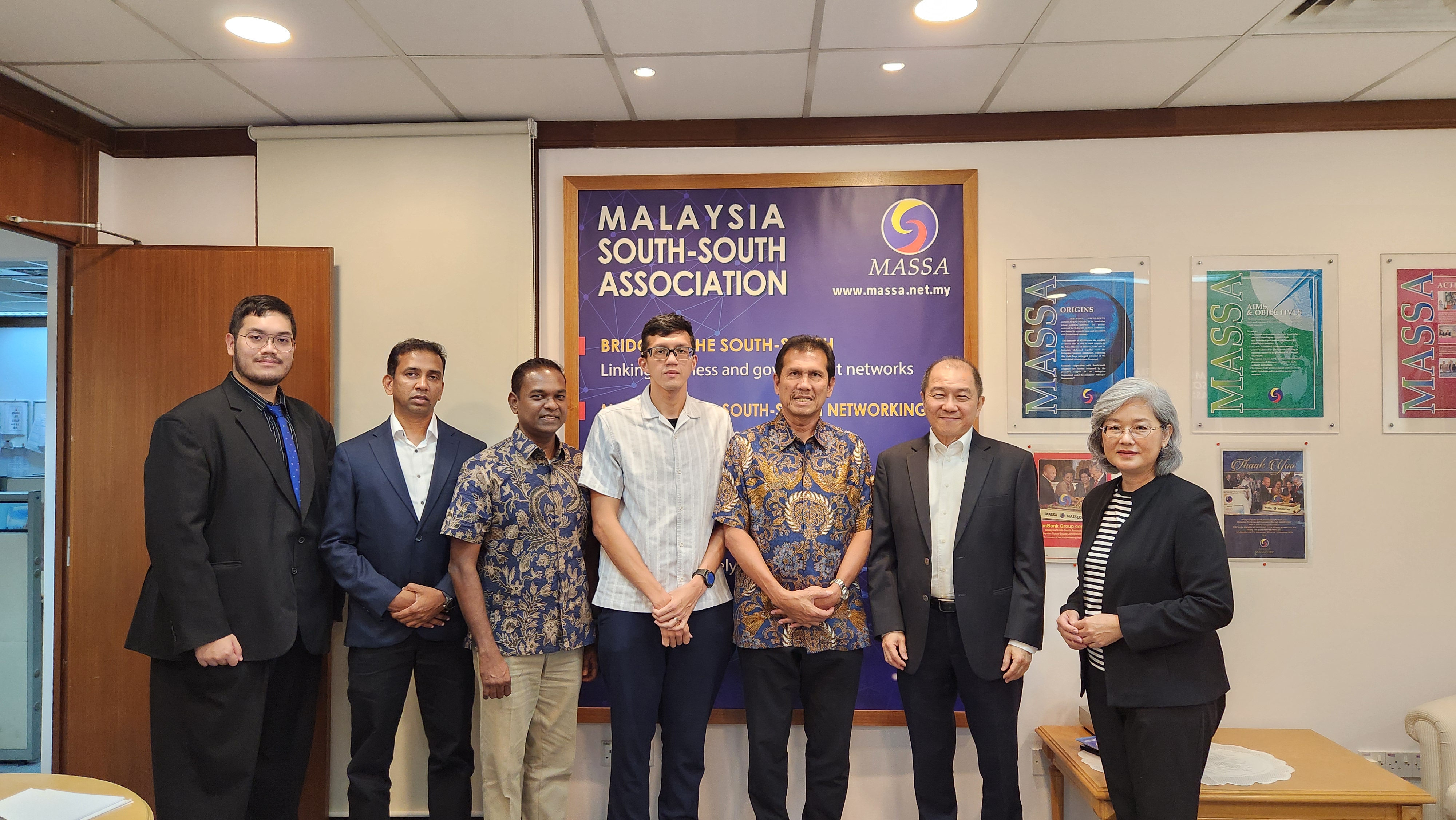
From left-to-right: Mr Samuel Loh, Programme Executive, MASSA, Mr Sivavenayakam Velayutham, CEO & Founder of Kolaxus & Director – Partnership & Key Project, Finexus Group, Mr Mani Wannan, Vice President, Malaysia Chambers Jakarta (MCJ), Mr Alvidyan Virgarazman, CEO, PT Vitka Inti Internasional, VITKA Holdings, Dr Asman Abnur, Chairman, PT Vitka Inti Internasional, VITKA Holdings, Dato’ Lawrence Lim Swee Lin, Hon. Secretary, MASSA & Director, MASSCORP, and Ms Ng Su Fun, Executive Secretary, MASSA & General Manager, MASSCORP
4. Luncheon Meeting hosted by Tan Sri Azman Hashim
The delegation extended an invitation to Tan Sri Azman Hashim & MASSA to consider investments in Indonesia, particularly in Batam.
Batam is well-positioned and strategically located as a neighbouring city to Singapore & Johor, and is one of the top 3 ports in Indonesia.
Follow the New Silk Road: Malaysia’s Strategic Pivot to Africa
Follow the New Silk Road: Malaysia’s Strategic Pivot to Africa
Article by Ms Aparupa Chakravarti, Director, Botho Emerging Markets Group
Malaysia has undergone substantial economic transformation, evolving from a commodity-dependent economy to a diversified middle power. This progress has been largely driven by South-South cooperation and ASEAN’s regional growth. With aspirations to achieve high-income status by 2050, Malaysia’s trajectory now demands an expanded scope of international partnerships. Strengthening ties with Africa, particularly through the emerging halal economy, strategically aligns with Malaysia’s long-term growth prospects.
Africa’s role in the global economy is rapidly shifting. The UN projects that by 2050, one in four people worldwide will reside in Africa, underscoring the continent’s demographic significance. Africa’s working-age population, already the youngest globally, is growing by over 12 million individuals annually, contrasting with aging populations in other regions that threaten to constrain economic dynamism. Sub-Saharan Africa’s economic growth, forecast to reach 4% by 2025-26 against the global growth average of 2.7%, positions the continent as an increasingly vital component of global economic activity. These demographic and economic trends present an opportunity for Malaysia to broaden its markets beyond traditional ASEAN partnerships.
Recognition of Africa’s strategic importance is also evident in global diplomacy. The African Union’s recent inclusion in the G20 reinforces the continent’s influence in global governance, reflecting the region’s shift from a passive participant to an active contributor in international decision-making. At the latest BRICS summit, African countries led by South Africa advocated for global policy reforms, securing a formal role among higher-income nations like Russia and China. These developments indicate a geopolitical recalibration, with global powers seeking to deepen relations with Africa as they recognize its potential for growth and influence.
Economic engagement in Africa by non-Western nations has accelerated. Brazil, the world’s largest halal exporter, recorded over $8 billion in halal exports to Africa in 2022—a 35% increase from the previous year—and has announced plans to scale this further. The UAE has also intensified its investments, committing over $60 billion to Africa between 2012 and 2022, making it the continent’s fourth-largest investor after China, Europe, and the US. Trade between the UAE and Sub-Saharan Africa has expanded by more than 30%, with trade volume now twelve times greater than a decade ago. Notable investments include DP World’s $80 million logistics hub in Egypt’s Suez Canal Economic Zone and Turkish e-commerce firm Hepsiburada’s partnership with African retailer Jumia. These examples underscore the growing recognition of Africa as an emerging economic frontier.
In this context, Malaysia has a distinct opportunity to deepen its economic engagement with Africa. While China remains Africa’s dominant trading partner, other Asian nations are increasingly active in the region. South Korea, for instance, has integrated Africa into its “global pivotal state” strategy, leading to a 29% annual increase in bilateral trade as it seeks to diversify supply chains. Unlike other Southeast Asian countries, with the notable exception of Indonesia, Malaysia has established relationships across Africa, largely rooted in its South-South cooperation narrative.

From a Marine Insights article on Djibouti Ports
Malaysia’s established agreements with African countries provide a strong foundation for expanding its presence. The Kenya National Chamber of Commerce and Industry’s MoU with the Kuala Lumpur & Selangor Indian Chamber of Commerce & Industry, along with various partnerships between Malaysia, Ethiopia, and South Africa, facilitate cooperation across sectors like trade, industry, and agriculture. Malaysian firms such as Petronas, Golden Africa Kenya Ltd., SMH Railways, Probase Manufacturing, Serba Dinamik, and BSMART Technology are already operational in Kenya, South Africa, Uganda, and Tanzania, demonstrating Malaysia’s foothold on the continent. Malaysia exports $6.9 billion in goods to Africa, and its imports have grown to $3.6 billion, signaling a solid trade foundation for further expansion.
Malaysia’s leadership in the halal economy further strengthens its position as an ideal partner for Africa. Consistently ranked first in the Global Islamic Economy Index, Malaysia’s expertise in Islamic finance, halal food, and Muslim-friendly tourism can support Africa’s growing halal sector. By 2030, 17.6% of the global Muslim population is projected to reside in Africa, and the halal cosmetics market alone represents an $8 billion opportunity. Islamic finance initiatives are also expanding: Kenya has amended its capital market policies to allow sukuk issuances, while Tanzania and Uganda are progressing toward similar offerings. Ethiopia has recently established full-scale Islamic financial institutions. Djibouti, which boasts one of Africa’s most developed Islamic finance sectors after Sudan, exemplifies this growth through its funding of major projects like the $65 million Djibouti Africa Regional Express fiber cable. The $590 million Dolareh Multipurpose Port further solidifies its potential as a significant regional trade and financing hub. With its strategic location at a global crossroads and deep-sea ports, Djibouti’s financial infrastructure positions it as an ideal partner for Malaysia’s African expansion, particularly in the halal trade and Islamic finance sectors. Given that Malaysia’s halal industry is projected to reach $113.2 billion by 2030, the country is well-positioned to tap into this potential and forge mutually beneficial partnerships across African markets.
Malaysia’s primary economic focus has been on ASEAN markets, which have been instrumental in driving the country to middle-income status. However, diversifying into African markets could accelerate Malaysia’s medium- and long-term growth objectives while hedging against risks associated with overreliance on its immediate region. A targeted Africa-Malaysia strategy could provide Malaysia with a competitive advantage within ASEAN, positioning it as a leader in South-South trade while meeting its aspirations for global economic integration.
A broad, monolithic approach to engaging Africa would be inefficient for Malaysia, given the number and diversity of individual countries combined with the complex web of regional blocs. Instead, Malaysia would benefit from a more nuanced and targeted strategy to navigate the continent, one that goes beyond conventional value chain mappings and geographic groupings. Departing from the typical delineation separating the East and Horn of Africa, for example, the Djibouti, Uganda, Kenya, Ethiopia, and Somalia (DUKES) region presents a compelling frontier for Malaysia’s strategic entry. This collective, with its mix of dynamic emerging markets and asymmetrical opportunities, offers a pathway to gradually expand Malaysia’s influence. Djibouti, in particular, stands out as a potential financial and trading powerhouse with developed Islamic finance infrastructure and strategic deep-sea ports. Leveraging Djibouti’s position as a gateway economy, Malaysia can establish a foothold in the DUKES region, facilitating deeper economic integration and partnerships that can eventually extend across the wider African continent.
Malaysia’s prospects for high-income status depend on strategic engagements that diversify supply chains and tap into growing markets. Africa’s economic landscape, demographic trends, and Malaysia’s existing relationships create an opportune environment for a proactive, structured approach to bilateral and multilateral cooperation. Establishing a clear Africa-Malaysia partnership strategy could be a critical step in realizing Malaysia’s economic potential on the global stage.
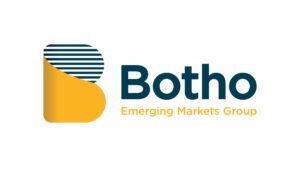
Botho Emerging Markets Group is a strategy consulting and investment advisory firm that facilitates the exchange of partnerships, opportunities, investments and knowledge between African countries and emerging economies around the world. For close to 20 years, we have guided Fortune 500 companies, governments, development institutions, SMEs, start ups, and nonprofits in entering into and navigating the world’s fastest growing markets. Botho is keen to build on this foundation and build similarly strong relationships between the Malaysian private sector and its African counterparts, through targeted market research and intelligence; strategy development; partnerships and government relations; and curated convenings. For further information, please contact Aparupa Chakravarti at aparupa@botholtd.com or Naam Chakravorty at naam@botholtd.com
2024 August Issue
‣ Country Feature: Federal Republic of Somalia
‣ Article: Understanding MSBDF and its Significance for Malaysian Businesses
‣ Diary of Events
‣ 30 May 2024
Meeting with the Malaysian Institute of Economic Research (MIER)
‣ 11 June 2024
Visit to SHRDC – Malaysian Smart Factory (MSF) 4.0 Discovery Day
‣ 12 June 2024
Sharing Session on e-Invoicing Implementation and Solutions at Finexus Campus
‣ 24 June 2024
33rd Annual General Meeting of MASSA
‣ 6 August 2024
Budget 2025 MITI Dialogue with Industry
‣ 7 August 2024
Courtesy Call on H.E. Lisualdo Gaspar, Ambassador of Timor-Leste to Malaysia
‣ 14 August 2024
Meeting at the Embassy of the Federal Republic of Somalia to Malaysia
‣ Remembering the late Tun Michael Chen Wing Sum (1932 – 2024)
Country Feature – Federal Republic of Somalia
COUNTRY FEATURE
FEDERAL REPUBLIC OF SOMALIA
(SOMALIA)
Article by:
Dr. Mohamed Abdi Dahir Sh. Hassan.
Head of the Commercial & Industrial Office
Embassy of the Federal Republic of Somalia in Kuala Lumpur
E-mail: comattache.somembassy@gmail.com;
Malaysia.attache@moci.gov.so
The Commercial & Industrial Office at our Embassy will be dedicated to providing free, comprehensive and confidential information, advice, assistance and all manner of support to all southeast Asian investors.
A Brief on Trade and Investment Opportunities in Somalia – Presented to Malaysian Investors
General Information
| Official Name: | –Federal Republic of Somalia |
| Head of the Government: | -President Hassan Sh. Mohmoud
-Prime Minister: Hamza Abdi Barre |
| Capital City: | -Mogadishu |
| Area: | -637,657 km² |
| Coastline | -3333 km – (The longest coastline in Africa) |
| Population: | -Appx. 17.6 million (according to the United Nations as of 2022) |
| Location: | -Somalia, is the easternmost country of Africa (Horn of Africa), Somalia’s unique geographic location makes it the Gateway to Africa for business and trade and occupies an important geopolitical position between sub-Saharan Africa and the countries of Arabia and southwestern Asia. |
| Country Borders: | -Bordered by the Gulf of Aden to the north, by the Indian Ocean to the east, by Ethiopia to the west, Kenya to the Southwest and by Djibouti to the northwest. |
| Topography: | The landscape of Somalia is primarily made up of plateaus, plains, and highlands. Southwestern Somalia is dominated by the country’s only two permanent rivers, the Jubba and the Shabelle. |
| Climate | Somalia generally has an arid and semi-arid climate with two seasonal rainfall periods, resulting in an annual mean temperature around 30°C across the country |
| People, Language and Religion | Homogeneous society that shares 100% a common Somali ethnicity and Islamic religion, the official language is the Somali Language, the majority also speak or Arabic or English. |
| International Country Code: | +252 |
| Internet Country Code: | .So |
| Time Zone: | GMT+3 |
Pro-Business Climate – Political and Security Context
Somalia was recovering in the last view years and consolidating gains in peacebuilding, the government was focusing its efforts on setting up strong national institutions and promoting inclusive political & Development processes, ensuring security, promoting equal access to justice and the current government struggles to provide basic social services including security, health, education, water, electricity, employment etc. to ordinary citizens.
Political stability, Peace building, security and the rule of law are among the priority topics listed in the current National Development Plan (2020-2024). The tasks listed by the government include revising the constitution, establishing a multi-party democracy with fair and credible elections, strengthening the federal system and the political dialogue on national reconciliation, and reforming the security sector and the legal system.
The security issues may be a concern for some investors and trade partners, however significant efforts have been made by the FGS in cooperation with international partners, to strengthen security in Somalia. Both the frequency and impact of insecurity incidents are on the decline and the biggest misconception is that Somalia is continuously in a state of conflict and operating in the country is impossible.
The Current Government looks the security as an important aspect to pay attention and the Government aims to eliminate Al-Shabaab by the year’s end as the Somali President Launched in June last year a major Offensive, which liberated a large area of the southern and central Somalia.
Economic Performance
Over the past decade, Somalia has shown resilience and gradual economic improvement despite facing significant challenges. Key indicators such as GDP, GDP per capita, and GNI have increased, reflecting a slow but steady economic recovery. The agriculture and livestock sector remains the backbone of the economy, while the services sector has been growing, particularly in telecommunications and financial services. The industrial sector remains small but has potential for growth with proper investments and stability.
- – According to the International Monetary Fund, Somalia’s “economic activity was expanding and the GDP Growth was good by average of 3.5% per year from 2012 till 2018, driven by growth in agriculture, construction, and telecommunications.
- – From 2019–2022 Real GDP growth has been low and volatile, averaging around 2% per year while real GDP per capita averaged -0.8% per year because of the Covid-19 Pandemic and severe drought.
- – In 2022/ 2023 The GDP in Somalia was worth 10.5 Billion US dollars and the GDP growth was around 2.8%, as the country recovered from drought, however the Somali’s economy is expected to record GDP growth of 3.7% in 2024 and 3.9% in 2025. Fiscal restraint combined with a favorable international environment for food and fuel costs has helped to reduce inflation.
- – Somalia’s GDP by economic Sectors: Agriculture/ Livestock: 58.3%, Services: 23.2%, Industry: 18.5%
IMF, World Bank and African Development Bank group Reports.
Efforts to improve infrastructure, governance, and security are crucial for sustaining this economic growth and ensuring a stable and prosperous future for Somalia.
Government Economic Strategy
The Somali Government’s economic strategy aims to address key challenges and leverage opportunities to foster sustainable development, enhance economic stability, and reduce poverty. Here is a conceptual overview of the strategy based on various sources:
- 1. Macro-Economic Stability and Fiscal Policy
Objective: Achieve and maintain macroeconomic stability by implementing sound fiscal policies and budgetary processes to enhance transparency and accountability. Implementing tax reforms to broaden the tax base and increase domestic revenue. Reduce external debt and enhance debt sustainability through prudent borrowing and effective debt management.
- 2. Economic Diversification and Private Sector Development
Objective: Diversify the economy to reduce reliance on agriculture and build a resilient economy by promoting private sector investment in key sectors such as fisheries, manufacturing, and services. Improving the business environment by simplifying regulations, reducing bureaucracy, and enhancing access to finance for SMEs. Fostering public-private partnerships (PPPs) to attract investment in infrastructure and key economic sectors.
- 3. Infrastructure Development
Objective: Develop critical infrastructure to support economic growth and improve living standards by investing in transportation infrastructure, including roads, ports, and airports, to facilitate trade and connectivity. Enhance energy infrastructure to ensure reliable and affordable access to electricity. Improve water and sanitation infrastructure to support public health and economic activities.
- 4. Human Capital Development
Objective: Invest in human capital to build a skilled and productive workforce by expanding access to quality education and vocational training to equip the workforce with relevant skills. Improving healthcare services to enhance the overall health and productivity of the population. Promoting gender equality and empower women to participate fully in economic activities.
- 5. Agricultural and Rural Development
Objective: Enhance agricultural productivity and promote sustainable rural development by supporting smallholder farmers with access to modern agricultural inputs, technology, and training. Promoting sustainable agricultural practices to ensure long-term productivity and environmental protection. Developing rural infrastructure, such as irrigation systems and rural roads, to support agricultural activities and improve market access.
- 6. Governance and Institutional Capacity Building
Objective: Strengthen governance and build institutional capacity to implement economic policies effectively. Enhance the capacity of government institutions to design and implement economic policies and programs. Promote good governance practices, including anti-corruption measures, to build public trust and ensure effective service delivery. Foster inclusive governance by ensuring participation from all segments of society in the decision-making process.
Foreign Direct Investment in Somalia
Somalia’s NDP outlines the government’s strategic objectives for economic development, including reforms in the business environment, public financial management, infrastructure development, and laws to attract foreign investment.
There has never been a better time to invest in Somalia. The government is determined to restore the country as the regional hub for commerce, transportation, trade and industry. Our strength in agriculture, fisheries and livestock can help to overcome the food security challenges of many parts of the world, our unique wind and solar capabilities can pioneer a new age of affordable and clean energy to Spur further economic growth across the region. We welcome investors to participate in the rebuilding of hope, opportunity and prosperity in the Horn of Africa.
The Somali Parliament passed a foreign investment law in 2015, to promote and protect foreign investment, the law also provides flexible incentives to ensure the investor’s needs are met effectively and efficiently including Tax advantages, guarantees against expropriation & revenue sharing agreements to attract investment
The FGS has enacted the Investors and Investment Protection Bill into law on 20 March 2023, which will enhance investors’ confidence through providing legal protection to their investments, legal framework for investor-state dispute settlement, fair treatment, and a robust dispute resolution mechanism, as well as it will address Competition and anti-trust laws, expropriation and the transfer and repatriation of investments
The Federal Government of Somalia (FGS) welcomes foreign direct investment and offers a variety of opportunities for investment, especially in the key national priority sectors like Food Security Sectors [Livestock, Agriculture and fishing], Energy, and Infrastructure as well as finance and Health sectors.
The FGS and the Federal Member States (FMS) have a positive attitude towards all foreign direct investment (FDI) forms including public private partnerships, Joint Venture Partnership and other alternative investment financing Modalities. “Somalia is open for business” is the message that the Federal Government of Somalia is sending out to the world loud and clear and In line with this, our Government is making every effort to further enhance the investment environment.
Under the Foreign Investment Law Somalia Investment Promotion Office (SOMINVEST) Was established to promote foreign investment, provide potential investors with guidance on investing in Somalia and continuously advocate for improved investment policies.
Performance Requirements and Incentives
Somalia imposes no performance requirements on foreign investors all foreign investors with eligibility for incentives and facilities, incentives shall include the ability to have long term leases for up to 99 years for substantial investment in accordance with the applicable legislation governing such incentives and facilities.
Private Ownership Rights
There are no restrictions on the establishment of private businesses, size of investment, sources of funds, marketing products, source of technology, or method of training in Somalia.
Reasons to Invest in Somalia
Investing in Somalia presents a mix of opportunities and challenges, investing in Somalia presents significant opportunities, driven by economic expectations, financing possibilities, strategic location, and government reforms. While there may be some challenges, including political, infrastructure, or regulatory challenges, these can be mitigated through careful planning, due diligence, and leveraging international support. By focusing on sustainable development and building strong local partnerships, investors can tap into the burgeoning opportunities in Somalia and contribute to its long-term economic development.
- 1. Economic Expectations
- 1.1 Strategic Location:
- > Gateway to Africa and the Middle East: Somalia’s location along the Horn of Africa provides strategic access to major shipping routes, making it a potential hub for trade between Africa and the Middle East.
- > Ports and Trade: Major ports like Mogadishu, Berbera, and Kismayo are critical entry points for regional trade. Investments in port infrastructure can enhance trade and logistics capabilities.
- > Economic Regional and global integration: EAC (2023), COMESA (2018), IGAD, AFCFTA, AGOA, WTO, MIGA, OIC and Arab League.
- 1.2 Government Reforms and Stability:
- > Policy Reforms: The Somali government is implementing reforms aimed at improving the business environment, including regulatory improvements and anti-corruption measures.
- > Stabilization Efforts: International and domestic efforts to stabilize the political and security situation are creating a more conducive environment for investment.
- 1.3 Economic Growth Potential:
- > Untapped Resources: Somalia has vast untapped resources, including minerals, oil, and natural gas. The potential for exploration and development in these sectors is significant.
- > Agricultural Sector: With appropriate investment, Somalia’s agricultural sector can be revitalized. The country has arable land that can be developed for commercial farming.
- 1.4 Growing Population and Urbanization:
- > Demographic Dividend: Somalia has a young and growing population, which can be a significant driver of economic growth. A youthful demographic can provide a labor force that is adaptable and trainable.
- > Urbanization: Increasing urbanization is creating new markets for goods and services, driving demand for housing, infrastructure, and consumer products.
- 2. Financing Possibilities
- 2.1 Access to International Financial Institutions:
- > IMF and World Bank Support: Somalia has re-engaged with international financial institutions like the IMF and World Bank, which provide financial support and technical assistance.
- > Development Assistance: Various international donors and development agencies are active in Somalia, providing grants and concessional loans for development projects.
- 2.2 Private Equity and Venture Capital:
- > Growing Interest: There is increasing interest from private equity and venture capital firms in emerging markets, including Somalia. Investors are looking for high-growth opportunities in frontier markets.
- > Diaspora Investment: The Somali diaspora is a significant source of investment. Remittances from the diaspora contribute to local business funding and development projects.
- 2.3 Microfinance and Local Banking:
- > Microfinance Institutions (MFIs): MFIs are expanding their reach in Somalia, providing much-needed credit to small and medium-sized enterprises (SMEs).
- > Banking Sector Development: Local banks are improving their services, and there is potential for partnerships with international banks to enhance access to finance.
National Investment Priority Sectors
| Livestock Investment Opportunities;
· Milk Processing · Meat processing plants · Poultry Farms-. · Dairy Farming · Animal Feed Processing Plants. · Technical consulting services for livestock. · Investments in livestock Diagnoses & Treats · Investments in Leather processing and Manufacturing of leather products
|
Farming Sector Investment Opportunities;
· Agricultural equipment leasing services in partnership with Somali commercial banks; · Establishment of Agro-processing industries particularly investments in the sesame value chain. · Establishment of agricultural processing zones and industrial parks to add value to farm produce; · Establishment of phytosanitary & health regularity control facilities to ensure that agricultural commodities are up to standard before exports; · Sugar factory investment (JSP and Jowhar Factories) · Irrigation infrastructure development and management at Shabelle and Juba valleys
|
| Fisheries Sector Investment Opportunities;
· Value chain development · Marine products cold storage · Marine resource processing · Marine product packaging · Boat building and repairs · Marine skill development centers · Marine equipment and supplies
|
Manufacturing Sector Investment Opportunities;
· Special Economic Zones · Industrial parks & Warehousing facilities. · Fish Processing Zones · Investments in Paper Mills · Packaging Manufacturing · Logistics, Parcel Delivery and Courier Services · Business System Support- Manufacturing Proc.
|
| Banking & Financial Sector Investment Opportunities
· Online payments processing · Majority of SMEs lack access to medium- and long-term finance · Most of the financial institutions provide maximum 3-year payment plans which lowers the real estate growth in Somalia. · Audit firms required to provide banks with auditing and financial control services. · Independent ATM operators · Industrial labor Training and Management · Industrial Engineering and Maintenance
|
ICT/ Digital Economy for Somalia Sector Investment Opportunities;
· Software and hardware development · Market for mobile money services · High-speed internet for which the market is still unexploited · The ability to develop ICT in enterprises and schools for better competitiveness · Data Storages · Metro development for the fiber optic to major towns and cities · Broadband services · ICT consultancy services · Investments in diversification of Fiber Optic cables
|
| Real Estate & Construction Investment Opportunities;
· Real estate developers · Interior Decor · Realtors services · Surveyors services · Architectural services · Urban planning consulting services · Property management · Long term Real Estate financing/mortgage · Paint manufacturing · Glass manufacturing · Block manufacturing · Door and Window manufacturing · Cement Plants
|
Energy Sector Investment Opportunities;
· Cable Manufacturing Investment · Energy training institute to upscale energy labor · Biomass/Household Energy; Since urban consumers, especially the poorest, will continue to depend on biomass energy for decades to come despite incipient efforts at substitution, there is an investment opportunity to address both the supply and demand situations in the country. · Independent Power Production · Power Distribution · Renewables Energy investments in; Wind power · Solar and · Geothermal.
|
| Health Investment Opportunities;
· Establishment of a Mother and Child hospital in each Federal Member State and Banadir · Establishment of Referral Hospital in each Federal Member State · Pharmaceutical manufacturing · Pathology and Diagnostic Imaging Centers Education Investment Opportunities; · Centres of Excellence for each Federal Member State & Banadir Region · Training consultancy services |
Hospitality & Tourism Investment Opportunities; · Investments in Aviation sector · Investment in Tour services · Investments in Cruise and Cultural tourism · Investments in Conference and Convention Centers · Investments in Business Hotels · Investments in Airport Hotels · Investments in Suite Hotels · Investments in Extended Stay Hotels · Investments in Serviced Apartments
|
Somalia: Trade in goods
Trade Performance
Somalia has traditionally been a net importer of goods, but the government has been working to promote exports of products like livestock, fish, and agricultural goods. In 2016, the government launched the National Export Strategy, which aims to promote exports and increase competitiveness in key sectors such as agriculture, livestock, and fisheries. This has involved investing in infrastructure like ports and roads, as well as providing support to small and medium-sized enterprises (SMEs) that are looking to export.
In the past ten years, Somalia has experienced consistent export growth, averaging 2.4% annually; however, the growth of imports has been much more significant, leading to a negative trade balance. However, Somali Exports are consistent across multiple sources, showing Somalia’s Total Exports at Over 1 Billion with modest growth projected for 2024 and Beyond.
Somalia offers opportunities to invest in its farming sector as it is currently heavily import dependent on food and other food related products. Export promotion and increased investment in domestic supply chain development would be attractive for investors.
Somalia’s exports by product category.
Over the past decade From 2013 to 2023, Somalia’s export landscape have been consistently dominated by a few key product categories, The main exports include live animals, gums and resins, precious stones and metals, fish, and various agricultural products. These categories have remained relatively stable in their contribution to Somalia’s export economy, with minor fluctuations based on market demand and production capacities, reflecting the country’s reliance on its natural and agricultural resources.
The key trading partners for these exports include the United Arab Emirates, Oman and Saudi Arabia, reflecting the regional trade dynamics and the demand for these specific products in these markets.
Somalia’s imports by product category.
Over the past decade, Somalia’s imports have shown significant growth, reflecting the country’s reliance on foreign goods to meet domestic needs. It has primarily included food & fuel (This category has consistently been the largest, accounting for above 50% of total imports.), then construction materials, Electric and Electronics, Manufactured goods, Chemicals & pharmaceuticals and lastly Machines and transport vehicles.
Key import partners were the United Arab Emirates, China, India and Turkey, reflecting Somalia’s trade relationships and geographical trade dynamics. The import trends indicate a consistent increase over the years, from 2013 to 2023, the total value of imports has seen a steady increase with notable growth in construction material categories.
Market Potential for Exporters
- 1. Strategic Geographic Location: Somalia’s strategic location along major maritime routes enhances its potential as a key market for exporters looking to expand their reach in the Horn of Africa and beyond.
- 2. Market Growth: With an increasing demand for various manufactured goods, Somalia presents a growing market for exporters.
- 3. Rising Middle Class: The growing middle class with increasing purchasing power is a significant driver for demand in these categories.
- 4. Urbanization and Consumer Trends: Rising urbanization and changing consumer preferences leads to higher consumption of modern goods and create opportunities for exporters to introduce new products and brands.
- 5. Diaspora Influence: The Somali diaspora maintains strong ties with the home country, influencing market preferences and creating demand for international products.
Exporters looking to enter the Somali market should focus on competitive pricing, quality, and understanding local consumer preferences to maximize their potential in this emerging market. These insights highlight the critical role of international trade in Somalia’s economy.
Editorial
Greetings from MASSA !
In this August newsletter, we are pleased to bring you a Country Feature on the Federal Republic of Somalia. We thank the good office of Embassy of the Federal Republic of Somalia in Malaysia & its Commercial & Industrial Office for this Country Feature. The Country Feature highlights its emerging market potential, and a variety of investment opportunities, among which include the livestock & fishery value chains, and the financial & capital markets.
MASSA is also pleased to have an article from the Cross Border Investment Division, Malaysian Investment Development Authority (MIDA). This article highlights the Malaysia-Singapore Business Development Fund (MSBDF), administered by MIDA and Enterprise Singapore. It details how Malaysian businesses can access this Fund, together with Singapore counterparts, when exploring business and investment opportunities in third countries.
In the month of June, MASSA organised a Visit to the Selangor Human Resource Development Centre (SHRDC) in conjunction with SHRDC’s Malaysian Smart Factory 4.0 Discovery Day on 11 June, and a Sharing Session on e-Invoicing Implementation at Finexus Campus on 12 June. These meetings were attended by MASSA members and other members of the business community. These sessions aimed to introduce & avail to participants the developments across Smart Factory technology, cost-effective Digital Transformation, Generative AI applications and insights & solutions for the National E-Invoicing Initiative (NEI).
MASSA’s 33rd Annual General Meeting convened on 24 June 2024. It was hosted by MASSA President, YBhg Tan Sri Azman Hashim, at Bangunan AmBank Group. The MASSA 2023/2024 Annual Report can be read here: www.massa.net.my/massa-2023-2024-annual-report/ (or in this issue’s Diary of Events). MASSA was also represented by its members at the Budget 2025 MITI Dialogue Session on 6 August 2024, chaired by YB Senator Datuk Seri Utama Tengku Zafrul Abdul Aziz, Minister of Investment, Trade and Industry.
MASSA made Courtesy Calls on H.E. Lisualdo Gaspar, Ambassador Extraordinary and Plenipotentiary of the Democratic Republic of Timor-Leste to Malaysia on 7 August and also the First Secretary and Head of the Commercial & Industry Office of the Embassy of the Federal Republic of Somalia on 14 August wherein MASSA & its representatives were appraised of the latest developments and inbound investment & partnership focuses of the respective countries.
We want to thank our members, ex-officio, contributors, and partners for your support to date. MASSA remains committed to present to members, trade and investment leads from the South-South countries, as well as keep members appraised of the current and future-forward developments in Malaysia, and the region.
In view of this, several events to keep an eye out for are in the works. Do look for our weekly Circulars and postings in our website www.massa.net.my. We look forward to meet members at MASSA’s upcoming events.
This Editorial message would not be complete without the mention of the passing of Tun Michael Chen Wing Sum. Tun Michael was MASSA’s founding Vice President since MASSA’s inception in 1991. We will cherish fondly the memories of his steadfast commitment and untiring efforts to promote the cause of South-South business relations.
Ng Su Fun
Editorial MASSA
President’s Message
Tan Sri Azman Hashim
President
MASSA
Global growth for 2024 is projected to be between 2.6 – 3.2% this year according to forecasts by IMF and World Bank, while Asia’s economic growth is predicted to be 4.5% this year, making the Asian region a growth centre of the world. Positive factors including moderating inflation, resilient labour markets, improvements in global trade activity, technology upcycle and tourism recovery may be challenged by the headwinds of geopolitical tensions and uncertainties in the global interest rates.
Malaysia is experiencing robust economic growth. The first half of the year had seen the Malaysian economy grow by 5.0%, with 1Q2024 growth of 4.2% and 2Q2024 surging to 5.9% exceeding estimates. This was supported by robust growth from the construction sector, increased household spending, private investment growth, tourist arrivals, improved net exports and resilience in the labour market.
With the strong performance in the first half, the Malaysian economy in 2024 is expected to be grow within the range of 4-5% driven by domestic expenditure supported by expansion in the labour market and policy, and bolstered by increasing tourism arrivals, strong investment activities & exports benefitting from the spillover effects of the abovementioned global trends.
The Economy MADANI framework policies for economic structural reform include the (i) New Industrial Master Plan (NIMP 2030) which is aimed at increasing the value-add of manufacturing, the (ii) National Energy Transition Roadmap (NETR) outlines energy transition levers, some of which include energy efficiency, renewable energy, hydrogen, bioenergy, and green mobility amongst others, and the (iii) National Semiconductor Strategy (NSS) fast tracking Malaysia to become a global semiconductor hub. The Government of Malaysia aims to enhance fiscal sustainability, attract quality investments, advance green growth and build a prosperous and inclusive society through these and more targeted policies.
MASSA held its 33rd Annual General Meeting on a hybrid basis on 24 June 2024. MASSA will continue its focus on the South-South and direct some of its activities towards highlighting the business opportunities arising from these reform initiatives of the Government. MASSA has expanded its mandate to also be a platform for the promotion and facilitation of inbound partnerships into Malaysia with our South-South partners.
I would like to thank the Office Bearers and Executive Committee Members who continue to serve the Association for the current term till 2025. I appreciate the continuing support of all Members with your involvement at our regular meetings, events and webinars. I also wish to thank article and feature contributors from across the MASSA network, who have provided valuable and insightful articles for our newsletters and not forgetting the sponsors of our website.
Finally, on behalf of my colleagues in Malaysia South-South Association (MASSA), I wish to express our heartfelt condolences to Toh Puan Helen Chen & family on the recent passing of YABhg Tun Michael Chen Wing Sum.
Tun Michael Chen, was a Founding Member of MASSA and served as Vice President on the Executive Committee of MASSA, as well as Deputy Chairman of the Malaysian South-South Corporation Berhad (MASSCORP) since its inception in 1992. He played an instrumental role in spearheading MASSCORP’s business investments into S.R. Vietnam culminating in a very successful business of developing and managing an industrial zone, as well as a housing project in Danang city. He left an indelible mark as Chairman of MASSDA Land Company Limited (Vietnam). His vast insights navigating the government and policy space in the developing countries and his business acumen in the challenging markets of these emerging countries will be greatly missed.
Thank you.
Tan Sri Azman Hashim
President
19 August 2024
UNDERSTANDING MSBDF AND ITS SIGNIFICANCE FOR MALAYSIAN BUSINESSES
Article by the Cross Border Investment Division, Malaysian Investment Development Authority, MIDA
UNDERSTANDING MSBDF AND ITS SIGNIFICANCE FOR MALAYSIAN BUSINESSES
What is MSBDF?
- • The Malaysia-Singapore Third Country Business Development Fund (MSBDF) is a fund designed to support businesses or associations from both Malaysia and Singapore in jointly exploring business and investment opportunities in third countries. Administered by MIDA and Enterprise Singapore, the fund supports activities such as joint missions, joint feasibility studies and joint pilots, which require participation from both Malaysian and Singaporean entities. This collaborative initiative aims to strengthen cooperation between the private sectors of both countries, enhancing their ability to pursue business and investment opportunities abroad.
- • Both agencies serve as the implementing agencies for the MSBDF and act as a facilitator for businesses to tap into the fund and processes the applications received.
Investments that qualify for MSBDF must:
- • Provide access to new or existing technologies
- • Open new marketing channels or acquire existing ones overseas
- • Access overseas resources that support joint venture expansion or diversification
Key considerations for the MSBDF are that investments should create joint economic benefits for Malaysia and Singapore. Favorable investments include:
- • Enhancing R&D, design and engineering capabilities through new facilities, patents and specialised knowledge.
- • Improving access to overseas resources and marketing channels to boost production, export sales and services from both countries.
- • The Fund supports activities in but is not limited to the following sectors:
manufacturing, tourism, infrastructure development, construction, information technology, trading and services, green technology and digital economy which are deemed suitable by Implementing Agencies.
The activities for MSBDF consist of: –
- 1. Joint Trade Missions
Organise and participate in joint missions to other countries to explore business and investment opportunities.
- 2. Joint Feasibility Studies
Hire independent experts to conduct due diligence and market feasibility studies in other countries.
- 3. Joint Pilots
Run pilot projects in the digital and green economy sectors with activities either in third countries, Singapore or Malaysia reviewed on a case-by-case basis.
Activity 1 and 2 must be conducted in third countries with exception to Activity 3. A third country means other country besides Malaysia and Singapore.
The Aims of MSBDF
- 1. To promote economic cooperation between Malaysia and Singapore businesses in identifying business and investment opportunities.
- 2. To identify potential business environment, leads and opportunities in third countries.
- 3. To encourage technological innovation and technological advancements via test bedding activities to demonstrate viability and scalability of solution and/or innovate new solutions or products or services for clients.
Involvement of MASSA
The Malaysia South-South Association (MASSA) is an organisation that promotes economic cooperation among developing countries. MASSA can play a significant role in leveraging MSBDF for its members by providing:
- • Awareness and outreach by informing members about the opportunities and benefits of MSBDF.
- • Collaborative projects by encouraging joint ventures and collaborative projects between Malaysian and Singaporean businesses.
Tips for Malaysian Businesses to Apply for the MSBDF
- 1. Ensure that the business meets the eligibility criteria set by MSBDF.
- 2. Ensure necessary documents such as business plans, financial statements and project proposals are provided as required in the guideline and application form.
- 3. Submit application by applying through MIDA or Enterprise Singapore. Companies must determine who will lead the activities and Lead Applicants shall submit their application based on the country they are registered in with all required documentation.
- 4. Working closely with MIDA for guidance, feedback and support throughout the application process.
- 5. Utilising MASSA’s network and resources for additional support and partnership opportunities.
Conclusion
The Malaysia-Singapore Business Development Fund (MSBDF) is a valuable resource for Malaysian businesses looking to expand their horizons and strengthen their ties with Singapore businesses. By leveraging the support of MIDA and MASSA, businesses can maximize their benefits from MSBDF, driving growth, innovation and collaboration in the region.
For more detailed information and assistance, businesses are encouraged to contact MIDA.



